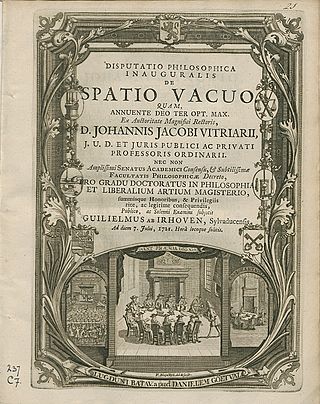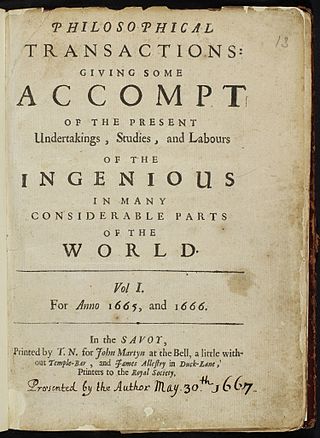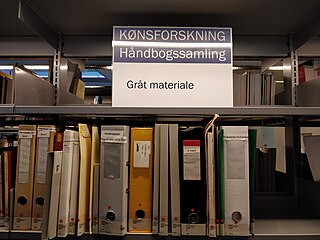
In academic publishing, scientific journal is a periodical publication designed to further the progress of science by disseminating new research findings to the scientific community. These journals serve as a platform for researchers, scholars, and scientists to share their latest discoveries, insights, and methodologies across a multitude of scientific disciplines. Unlike professional or trade magazines, scientific journals are characterized by their rigorous peer-review process, which aims to ensure the validity, reliability, and quality of the published content. With origins dating back to the 17th century, the publication of scientific journals has evolved significantly, playing a pivotal role in the advancement of scientific knowledge, fostering academic discourse, and facilitating collaboration within the scientific community.

arXiv is an open-access repository of electronic preprints and postprints approved for posting after moderation, but not peer review. It consists of scientific papers in the fields of mathematics, physics, astronomy, electrical engineering, computer science, quantitative biology, statistics, mathematical finance and economics, which can be accessed online. In many fields of mathematics and physics, almost all scientific papers are self-archived on the arXiv repository before publication in a peer-reviewed journal. Some publishers also grant permission for authors to archive the peer-reviewed postprint. Begun on August 14, 1991, arXiv.org passed the half-million-article milestone on October 3, 2008, had hit a million by the end of 2014 and two million by the end of 2021. As of April 2021, the submission rate is about 16,000 articles per month.

Louis de Branges de Bourcia is a French-American mathematician. He was the Edward C. Elliott Distinguished Professor of Mathematics at Purdue University in West Lafayette, Indiana, retiring in 2023. He is best known for proving the long-standing Bieberbach conjecture in 1984, now called de Branges's theorem. He claims to have proved several important conjectures in mathematics, including the generalized Riemann hypothesis.

In academic publishing, a preprint is a version of a scholarly or scientific paper that precedes formal peer review and publication in a peer-reviewed scholarly or scientific journal. The preprint may be available, often as a non-typeset version available free, before or after a paper is published in a journal.
A white paper is a report or guide that informs readers concisely about a complex issue and presents the issuing body's philosophy on the matter. It is meant to help readers understand an issue, solve a problem, or make a decision. A white paper is the first document researchers should read to better understand a core concept or idea. Since the 1990s, this type of document has proliferated in business. Today, a business-to-business (B2B) white paper is closer to a marketing presentation, a form of content meant to persuade customers and partners and promote a certain product or viewpoint. That makes B2B white papers a type of grey literature.

A thesis, or dissertation, is a document submitted in support of candidature for an academic degree or professional qualification presenting the author's research and findings. In some contexts, the word thesis or a cognate is used for part of a bachelor's or master's course, while dissertation is normally applied to a doctorate. This is the typical arrangement in American English. In other contexts, such as within most institutions of the United Kingdom and Republic of Ireland, the reverse is true. The term graduate thesis is sometimes used to refer to both master's theses and doctoral dissertations.

Academic publishing is the subfield of publishing which distributes academic research and scholarship. Most academic work is published in academic journal articles, books or thesis. The part of academic written output that is not formally published but merely printed up or posted on the Internet is often called "grey literature". Most scientific and scholarly journals, and many academic and scholarly books, though not all, are based on some form of peer review or editorial refereeing to qualify texts for publication. Peer review quality and selectivity standards vary greatly from journal to journal, publisher to publisher, and field to field.

Open access (OA) is a set of principles and a range of practices through which research outputs are distributed online, free of access charges or other barriers. With open access strictly defined, or libre open access, barriers to copying or reuse are also reduced or removed by applying an open license for copyright.

Scientific literature comprises academic papers that report original empirical and theoretical work in the natural and social sciences. Within a field of research, relevant papers are often referred to as "the literature". Academic publishing is the process of contributing the results of one's research into the literature, which often requires a peer-review process.
The SAO/NASA Astrophysics Data System (ADS) is an online database of over 16 million papers developed by the National Aeronautics and Space Administration (NASA) on astronomy and physics. Abstracts are freely available for most articles, and fully scanned articles may be available in Graphics Interchange Format (GIF) and Portable Document Format (PDF). Hosted papers may be from peer reviewed and/or non-peer-reviewed sources. ADS is managed by the Smithsonian Astrophysical Observatory.

The Social Science Research Network (SSRN) is a repository for preprints devoted to the rapid dissemination of scholarly research in the social sciences, humanities, life sciences, and health sciences, among others. Elsevier bought SSRN from Social Science Electronic Publishing Inc. in May 2016. It is not an electronic journal, but rather an eLibrary and search engine.
An article or piece is a written work published in a print or electronic medium, for the propagation of news, research results, academic analysis or debate.

Grey literature is materials and research produced by organizations outside of the traditional commercial or academic publishing and distribution channels. Common grey literature publication types include reports, working papers, government documents, white papers and evaluations. Organizations that produce grey literature include government departments and agencies, civil society or non-governmental organizations, academic centres and departments, and private companies and consultants.

Open science is the movement to make scientific research and its dissemination accessible to all levels of society, amateur or professional. Open science is transparent and accessible knowledge that is shared and developed through collaborative networks. It encompasses practices such as publishing open research, campaigning for open access, encouraging scientists to practice open-notebook science, broader dissemination and engagement in science and generally making it easier to publish, access and communicate scientific knowledge.
Nature Precedings was an open access electronic preprint repository of scholarly work in the fields of biomedical sciences, chemistry, and earth sciences. It ceased accepting new submissions as of April 3, 2012.

E-Verify is a United States Department of Homeland Security (DHS) website that allows businesses to determine the eligibility of their employees, both U.S. and foreign citizens, to work in the United States. The site was originally established in 1996 as the Basic Pilot Program to prevent companies from hiring people who had violated immigration laws and entered the United States illegally. In August 2007, the DHS started requiring all federal contractors and vendors to use E-Verify. The Internet-based program is free and maintained by the United States government. While federal law does not mandate use of E-Verify for non-federal employees, some states have mandated use of E-Verify or similar programs, while others have discouraged the program.
The Grey Literature International Steering Committee (GLISC) was established in 2006 after the 7th International Conference on Grey Literature (GL7) held in Nancy (France) on 5–6 December 2005.
Scholarly peer review or academic peer review is the process of having a draft version of a researcher's methods and findings reviewed by experts in the same field. Peer review is widely used for helping the academic publisher decide whether the work should be accepted, considered acceptable with revisions, or rejected for official publication in an academic journal, a monograph or in the proceedings of an academic conference. If the identities of authors are not revealed to each other, the procedure is called dual-anonymous peer review.
An authors' editor is a language professional who works "with authors to make draft texts fit for purpose". They edit manuscripts that have been drafted by the author but have not yet been submitted to a publisher for publication. This type of editing is called author editing, to distinguish it from other types of editing done for publishers on documents already accepted for publication: an authors' editor works "with an author rather than for a publisher". A term sometimes used synonymously with authors' editor is "manuscript editor" which, however, is less precise as it also refers to editors employed by scholarly journals to edit manuscripts after acceptance.
A manuscript is the work that an author submits to a publisher, editor, or producer for publication. Especially in academic publishing, manuscript can also refer to an accepted document, reviewed but not yet in a final format, distributed in advance as a preprint.











